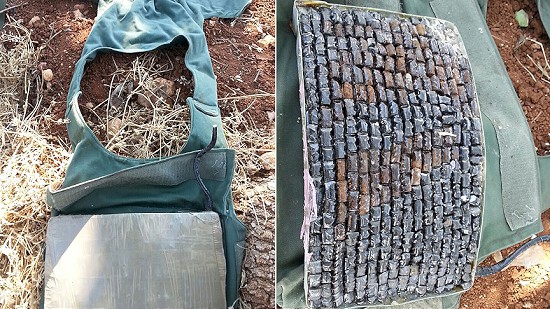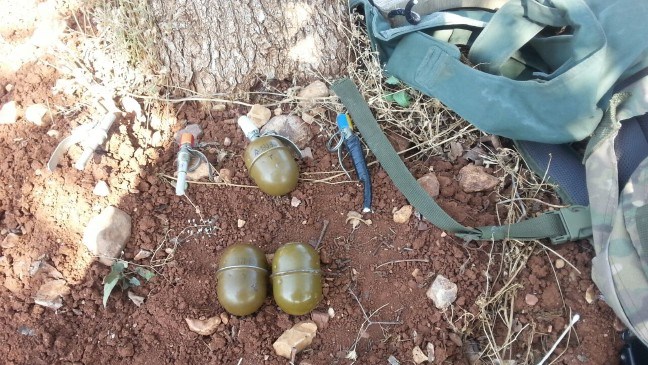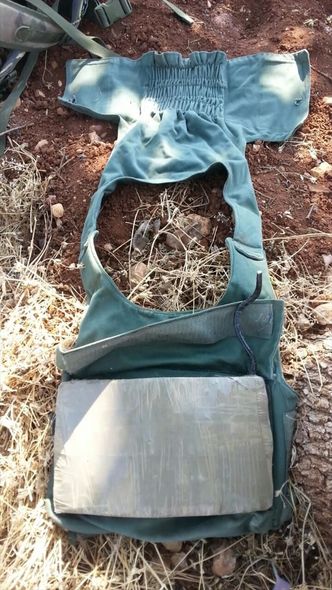Levent Kenez/Stockholm
An Islamic State in Iraq and Syria (ISIS) group comprising five foreign nationals who entered Turkey illegally through Syria with explosives, hand grenades and a suicide vest was released by a Turkish court several months after their arrest, a short period of time in Turkish criminal proceedings, a Nordic Monitor investigation shows.
A Kazakh woman in the group was deported despite having admitted to fellow inmates that the suicide vest belonged to her and that she had planned to carry out a suicide attack. The incident demonstrates that ISIS militants are granted impunity in Turkey, confirming long-standing allegations and that persons with the potential to commit acts of terrorism are allowed to return to their homeland.

A ruling by the Supreme Court of Appeals dated November 24, 2021 that set a precedent for the appointment of translators and lawyers to foreign defendants contains striking details about an ISIS case in 2017.
According to the ruling, on June 10, 2017 Turkish gendarmes captured five adults — Azerbaijani citizens Serkan Aliyev (34), his wife Gülnur Şirmemedova (42) and Nazanın Zeynelova (47); Kazakh citizen Anaçtaçnır Pozdeyeva(39); and Bosnian citizen wanted under an INTERPOL Red Notice Begzat Spahich (42) — along with two children in the military zone on the Syrian border near Kilis province in southern Turkey. During the search of the area where the suspects were apprehended, a backpack containing a device loaded with three kilograms of explosives, a vest used in suicide attacks and three Russian-made grenades were found.

In their first statements at the gendarmerie station, Aliyev and Spahich asked to benefit from the effective repentance law, admitting that they were members of ISIS; however, all suspects stated that they had nothing to do with the explosives. A Kilis court on June 14, 2017 ordered the arrest of all the suspects for alleged membership in ISIS, entering Turkey illegally and possession of explosives.
In the third hearing of her trial held on October 24, 2017, Zeynelova, who had previously stated that she had problems with her muscles and was unable to walk, was released pending trial for health reasons but failed to attend any subsequent hearings. Although a new arrest warrant was issued for her, she was not caught again and remains at large. At the same hearing Anaçtaçnır Pozdeyeva stated that her real name was Anastasia Pozdeyeva. The court decided to investigate her true identity.

In the final hearing on January 30, 2018, the court sentenced female defendants Şirmemedova, Zeynelova, Anaçtaçnır/Anastasia Pozdeyeva to six years, three months in prison for membership in ISIS and Aliyev and Spahich, who pleaded guilty, to four years, two months. Despite the sentences and the possibility of escape, all the defendants were handed over to the Interior Ministry’s Directorate of Migration Management for deportation.
Nordic Monitor learned that defendants Aliyev, Şirmemedova and Spahich were sent back to prison after their sentences were upheld by an appeals court while they were awaiting deportation in repatriation centers.
However, it turned out that Turkish authorities did not adequately investigate Kazakh national Anastaçnır/ Anastasia Pozdeyeva and did not evaluate the reports on her in a timely fashion, causing a scandal.
On the day of Pozdeyeva’s release, January 31, 2018, Turkish citizens Aylin Buse Kaplan, Büşra Nur Tan and Süleyme Akın, who were held in the same prison cell as Pozdeyeva, applied to the Tarsus Chief Public Prosecutor’s Office in writing and reported that she had told them the explosives and vest belonged to her and that she had been planning to carry out a suicide bombing attack.
Report filed by fellow inmates saying that Pozdeyeva, a citizen of Kazakhstan, might be a suicide bomber:
Taking the allegations seriously, the prosecutor’s office called the prisoners to testify on February 1, 2018. The following day, the prosecutor stated that new evidence had emerged, notifying the court in Kilis where the case was heard.
Despite the fact that the new evidence was reported on January 31 and new charges were filed on February 2, the Interior Ministry deported her and her daughter to Kazakhstan on February 9, 2018. It is a failure of the justice system that Pozdeyeva, who was in custody awaiting deportation, was not rearrested during those 10 days despite significant new evidence being found. Considering that similar failures have been frequently experienced in recent years in Turkey, it could be claimed that it is systematic and state policy.
The Supreme Court of Appeals 2021 ruling stated that Pozdeyeva had obtained a travel document from the Consulate General of Kazakhstan so that she could leave the country. There is no reference in the high court’s documents that any information about her situation and her posing a threat was shared with the Kazakh authorities.
It is not known how many ISIS terrorists were actually released in Turkey from detention centers and prisons because the government has never announced the figure. However, it is estimated that thousands of ISIS militants were let go after detention based on statistics provided by government officials at various times. The criminal justice system in Turkey, under the strict control of the Islamist government, has systematically failed to jail ISIS militants. Nordic Monitor has published multiple reports based on confidential documents and whistleblower accounts showing how Turkish intelligence worked closely with ISIS and al-Qaeda militants to promote the Erdoğan government’s political agenda as well as a secret intelligence document dispatched by Turkey’s Security General Directorate confirming that ISIS militants were released from Turkish prisons after short pre-trial detentions.
Moreover, Turkey’s most-wanted list includes a few ISIS suspects, while many critics who have nothing to do with terrorism are included on the list of fugitives, yet another sign of how the government is not really interested in cracking down on ISIS. There are only 84 alleged ISIS members out of the 1,304 people named on the list, amounting roughly 6 percent of the total wanted. Since its creation, the list has never included Abu Bakr al-Baghdadi, the former leader of ISIS who was killed by a US raid in October 2019, a few kilometers from the Turkish border in northern Syria, despite the fact that ISIS has killed more than 200 civilians in Turkey and abroad and a number of soldiers, including two who were burnt alive, and carried out a car bomb attack against the Turkish police. Similarly, al-Baghdadi’s successor, Abu Ibrahim al-Hashimi al-Qurashi, is not listed as wanted.
Finally, speaking to parliament’s Planning and Budget Committee in November, Interior Minister Süleyman Soylu announced the number of ISIS members detained and arrested since 2016 with figures that were inconsistent with those of other Turkish authorities.
Full text of the Supreme Court of Appeals ruling:












